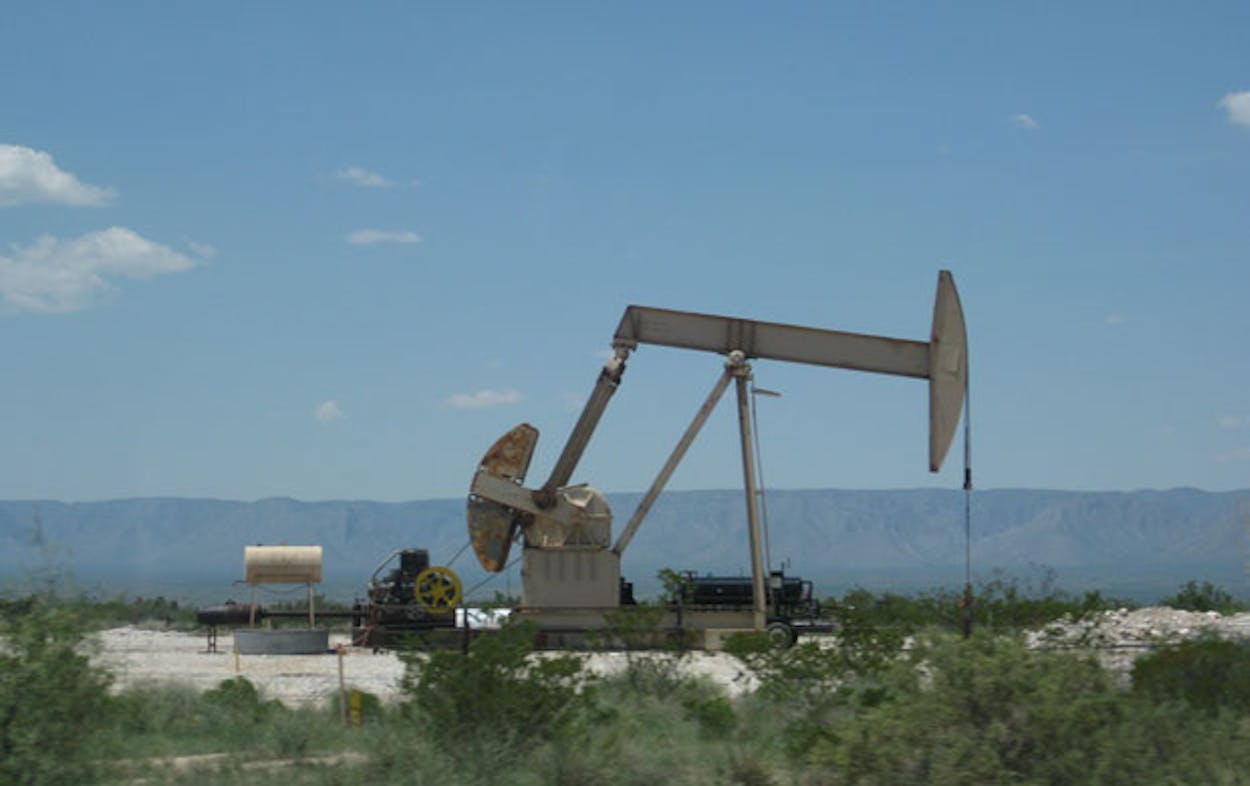Update:
Will there ever be a “Texas Energy Resources Commissioner”?
The latest attempt to rename the Texas Railroad Commission began today, with a public hearing before the Texas Sunset Advisory Commission to consider a potential name change, along with several other issues related to the powerful state agency, which as most–but not all–people know, is tasked with regulating oil, gas, and other energy. Not trains.
As Asher Price of the Austin American-Statesman reported, regardless of the Sunset commission recommendations, there would also have to be some legislation too. Similar measures have failed in 2005, 2009 and 2011. Rep. Jonathan Stickland (R-Bedford) has already prefiled such a bill for the upcoming session.
Opposition to the change is based largely on tradition and expense (such as changing letterheads and business cards), while those in favor of it see it see the move as more than just mere nomenclature.
Renaming the Commission “might serve as a litmus test of whether the Legislature has the stomach to beef up the long-limp enforcement arm of the agency . . .,” Price wrote. “An agency with “energy” in the name is likely to get far more scrutiny than one with the oldtimey-sounding ‘railroad’ moniker.” Price continued:
In a written response to the Sunset staff report, [commission chairman Barry] Smitherman and the agency’s other two commissioners—David Porter and Buddy Garcia, who no longer serves on the commission—said they favored a name change.
“Changing the name of the Commission would help citizens better understand the Commission’s duties and ensure increased transparency for its primary role in overseeing energy exploration and production in Texas,” reads their response. “The Commission should be held to the same standards as all other statewide-elected executive branch officials.”
(Christi Craddick, who replaced Garcia last week, and starts her own elected term in January, seemed open to a new name earlier this year–see below.)
The Sunset report also recommends that the Commission, which critics see as being too pro-industry (what Price called “its historically light touch”) needs to be more aggressive against companies that violate environmental regulations, especially as the energy business “continues to expand into suburban areas and affect peoples’ day-to-day lives.”
Original post, June 12, 2012:
Enrique Rangel of the Lubbock Avalanche-Journal has put the spotlight on an interesting tangential aspect of the Republican primary race for Texas Railroad Commissioner: whether the job should even be called “Railroad Commisioner.”
“The [Texas Railroad Commission] has existed with the wrong name for a long time,” said state representative Warren Chisum (R-Pampa), who is in a run-off with oil and gas attorney Christi Craddick for the seat vacated by Elizabeth Ames Jones.
First established in 1891, the commission has been regulating oil and gas since 1920. As Rangel noted in a sidebar, it shifted the last vestige of its railroad safety oversight to the Texas Department of Transportation in 2005.
“We’re the worst-named agency in state government,” then commission chairman Michael Williams told the Associated Press in January of 2011, adding that Texans often tried to talk to him about trains (Texas has trains?).
Rangel says that Chisum and others in favor of a new name have suggested such possibilities as the Texas Energy Commission or the Texas Oil and Gas Commission.
The state legislature’s Sunset Advisory Commission has been considering a name-change recommendation (along with several other policy proposals), but that would still have to be followed by a two-thirds vote in both the House and Senate. Bills to change the name have failed in past sessions, including in 2005, 2009, and last year.
Among the leaders of the opposition to renaming: Christi Craddick’s father, state representative Tom Craddick (R-Midland). The former Speaker of the House told Rangel that the name Texas Railroad Commission is well known to the folks that really matters: people in the business, especially, Rangel wrote, “in oil-producing countries such as Saudi Arabia or in OPEC circles.”
But Christi Craddick acknowledges that this may not be the case at home.
“Oil and gas is the lifeblood for West Texas,” she told Rangel. “But I just don’t think most people in Lubbock, Amarillo or anywhere else understand what the Railroad Commission does.”







